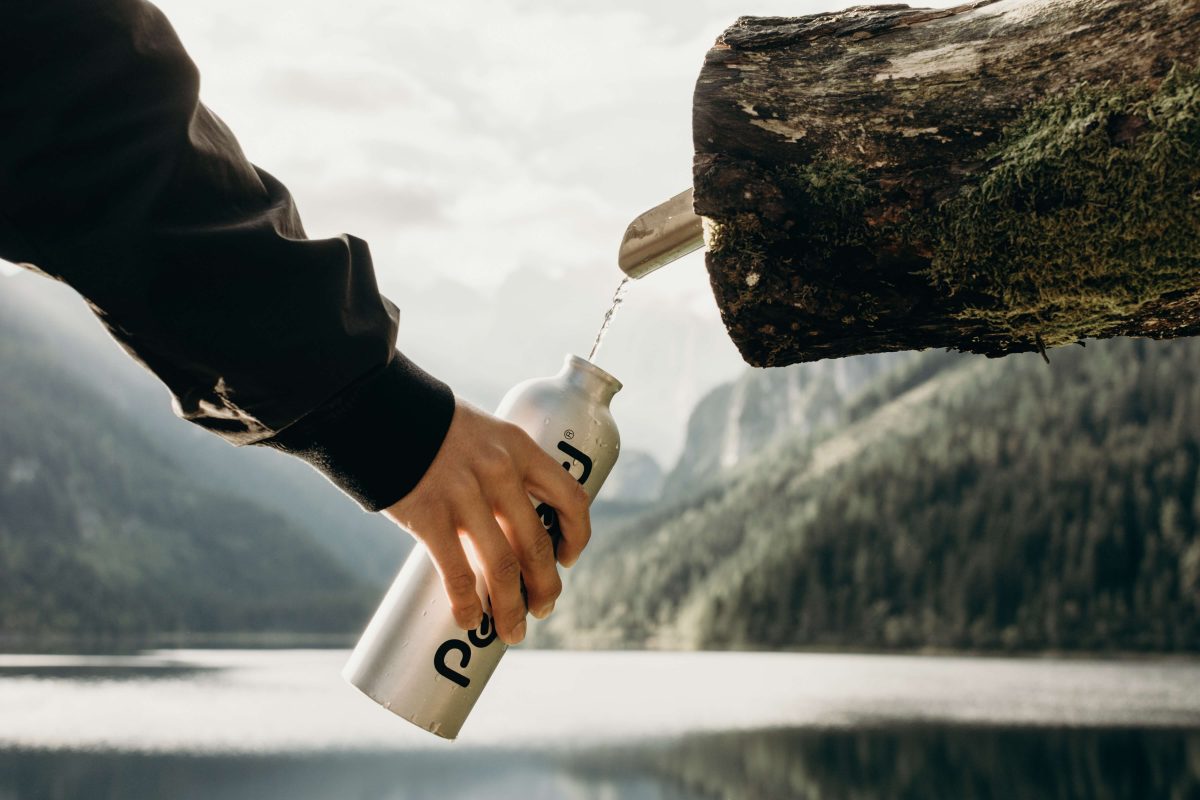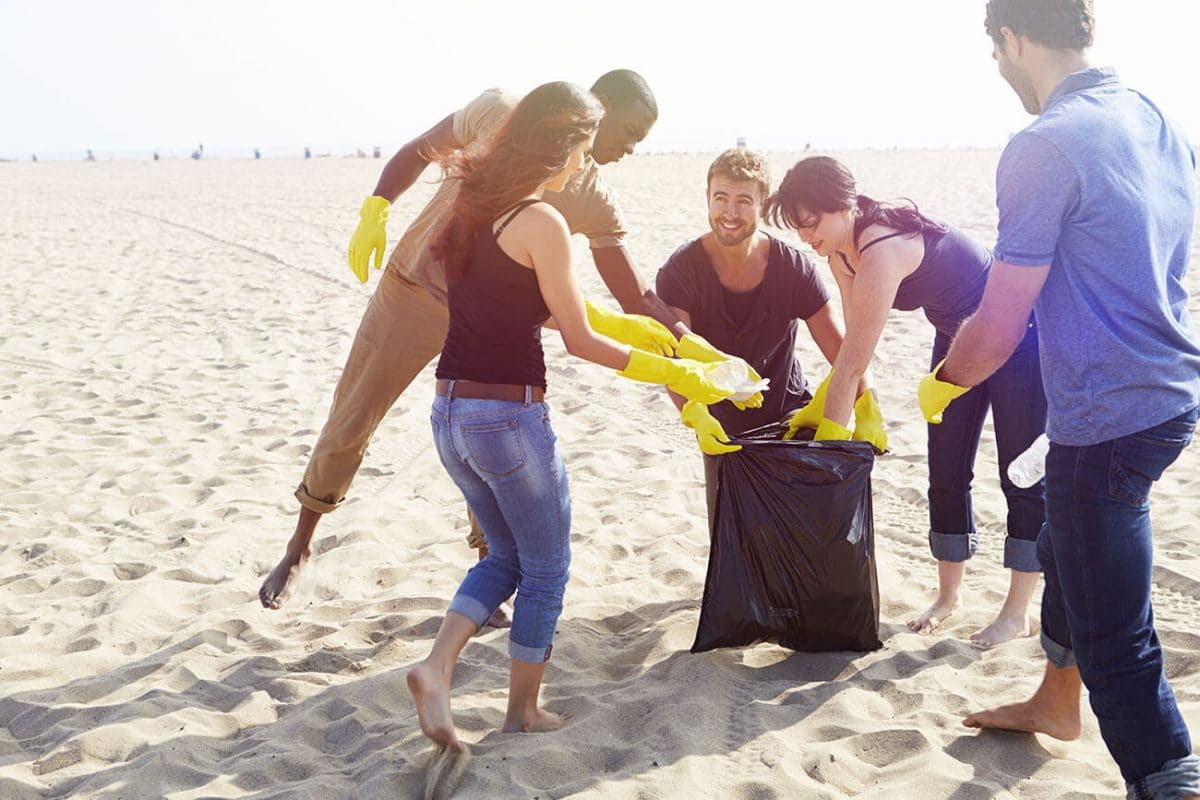The Oceans are massive, pulsing, vibrant bodies of water that serve humanity in countless ways—from providing food to enabling commerce to simply being beautiful.But these powerful expanses of sea are not invincible. Each year, human activity erodes marine life in some way, essentially polluting the oceans. It becomes complicated to ignore the gravity of ocean pollution, even for the most skeptical !By simply changing a few habits in your daily life, you can make a difference it helps reduce plastic waste more than you think. Here are some solutions to reduce the Ocean pollution
1- Use a reusable bottle
Plastic bottles are present in very (very) large quantities in our oceans, they are ingested by marine mammals or accumulate in nature and on our beaches. Different kinds of plastic can degrade at different times, but the average time for a plastic bottle to completely degrade is at least 450 years. It can even take some bottles 1000 years to biodegrade.The Great Pacific Garbage Patch is a colossal floating mass of plastic that currently measures three times the size of France. Wildlife often mistakes floating bits of plastic for food and ingest them, with dire consequences.For example, sea turtles mistake floating plastic bags for jellies, and birds will often mistake plastic pellets for fish eggs. The birds bring the plastic back to their chicks who then die of ruptured stomachs. A dead albatross found on a Hawaiian island had 119 plastic bottle caps in its stomach. A dead sperm whale found on a North American beach not only had a body full of plastic, but the one-gallon bottle was found clogging up its small intestine.Unfortunately, this is not the only floating garbage mass in our oceans. The Atlantic and Indian oceans have their own floating trash piles, and evidence suggests more areas are being affected… Reusing plastic bottles can significantly reduce Ocean pollution, greenhouse gas emissions, and energy usage.
2 – Refuse disposable utensils : Straws, cutlery, tumblers and plastic bags…
How many times have you eaten out at a restaurant and been handed a plastic-wrapped packet of plastic utensils? (Say that five times fast!) Or you brought your lunch to work (high five!) but left your handy dandy metal utensils at home, so you’re forced use the plastic forks and knives from your office’s drawers?
Plastic forks, knives and spoons may be convenient, but they’re wreaking havoc on our oceans. In fact, six million tons of non-durable plastics are discarded every year. “Non-durable” means that the plastic has a useful life of less than three years. Other examples of non-durable plastics include plastic packaging, trash bags, cups, and more.
While efforts are being made to remove debris from the oceans, improve recycling systems, and innovate barriers to prevent plastic from getting into waterways, we can all take action in our daily lives to stop plastic waste at the source.
While efforts are being made to remove debris from the oceans, improve recycling systems, and innovate barriers to prevent plastic from getting into waterways, we can all take action in our daily lives to stop plastic waste at the source !
In September, France became the first country to ban plastic cups, plates and cutlery. As part of the Energy Transition for Green Growth plan, it should come into effect in 2020 and is part of a wider green initiative to tackle climate change.
You can also contribute to Ocean Conservation while wearing the Ocean jewelry of Atolea, they give back to Coral Conservation for each purchase
3 – Recycle Properly
Recycling is an important factor in conserving natural resources and greatly contributes towards improving the environment. Below are some helpful hints about recycling in and around the home.
- Find ways of recycling different materials : Many materials can be recycled, such as paper, plastic, metal and glass. Other items such as furniture, electronic equipment, building material and vehicles can also be recycled but many people don’t often think to do so.
- Buy products that can be recycled : When shopping at the supermarket, buy products that can be recycled easily such as glass jars and tin cans.
- Buy products that have been made from recycled material : You can tell if a product is eco-friendly by looking at the label on the packaging.
- Avoiding buying hazardous material.
- Recycle bins.
4 – Picking up trash on the beach
Naturally, we feel a little protective of our beaches. We’re shocked to see that some people don’t care as much about our beaches as we do. When we spot trash and debris littering our beloved beaches, it’s upsetting—not only because it damages the beauty of the beach, but also because it hurts the fragile ecosystems that call the beach home. Each individual can better the ocean’s ecosystem by playing their part in keeping the beaches clean. The process is simple, easy, and a great lesson for the entire family!Along with the beach towels and umbrellas, bring along something to keep your trash in. This way you know where your trash is going and it is easier to keep track of.
If you are eating at the beach utilize spaces designed for eating. Some beaches offer picnic benches and areas to snack. Use these areas to throw away waste and prevent anything from scattering across the sand.Be prepared to see trash already on the beach. Not everyone has a perfect memory and may forget about their waste or it may have been blow away from them by the wind. If you find someone else’s trash on the beach, be kind and pick it up. I would wish for someone to do the same if I forgot about the trash left behind.
5 – Reduce energy use
Drastic reductions will help reduce Oceans’ temperatures. Current increases in temperatures are threatening marine life and starving it with scarce levels of oxygen. Carbon dioxide from burning fossil fuels is making our oceans more acidic. One consequence could be the loss of corals on a global scale, as their calcium skeletons are weakened by the increasing acidity of the water.There are many simple ways you can reduce your energy use. Ride a bike, walk or use public transportation. Use high efficiency appliances in your home. Turn off appliances when they aren’t in use. Turn up your thermostat a few degrees in the summer and down a few degrees in the winter. Use compact fluorescent light bulbs in your house…
6 – Use less fertilizer
When fertilizers are used in gardening and agriculture, the excess eventually ends up in the ocean. One of the most devastating pollutants are the nitrogen and phosphorus found in our fertilizer and sewage. When too much of either washes downstream, coastal waters become choked with heavily fertilized algae, which then dies and decomposes, consuming the oxygen in the water and asphyxiating animal life. This process, called eutrophication, has created at least 405 “dead zones” worldwide... Since all marine life requires oxygen to live, including fish and shrimp, they must flee the area or die.
7 – Avoid Products Containing Microbeads
Tiny plastic particles, called “microbeads,” have become a growing source of ocean plastic pollution in recent years. Microbeads are found in some face scrubs, toothpastes, and bodywashes… These microbeads can now be found in the worlds oceans – as far away from human habitation as the Arctic, trapped in the diminishing sea ice, floating in the water columns and being consumed by all of marine life. Avoid products containing plastic microbeads by looking for “polythelene” and “polypropylene” on the ingredient labels of your cosmetic products.
8 – Buy ocean-friendly products
Avoid products produced through unsustainable or environmentally harmful methods. For example, avoid cosmetics containing shark squalene and jewelry made of coral or sea turtle shell. These products are directly linked to unsustainable fishing methods and the destruction of entire ecosystems.
9 – Speak Up
The first step we should take is to simply spread the cause. People need to understand the effects of their actions and how we will all eventually suffer from the pollution. There are groups like Rise Above Plastics that we can join, but there are even simpler ways to make a change. Social media is a great way to get the message out to a wider demographic. Even if your platform only reaches a few hundred people, every little change helps. Perhaps the easiest way to raise awareness is living by example. Only drink from a reusable water bottle, use canvas bags at the grocery store and always recycle. If we want to save our oceans, every person needs to know and understand the cause.
10 – Keep your water clean
Polluted water is channeled to the sea. Harmful raw sewerage ends up in vulnerable shore-line systems. When washing up, do not allow waste to filter through your sink.





















Pingback: 15 Shocking Facts About Ocean Pollution - Passport Ocean